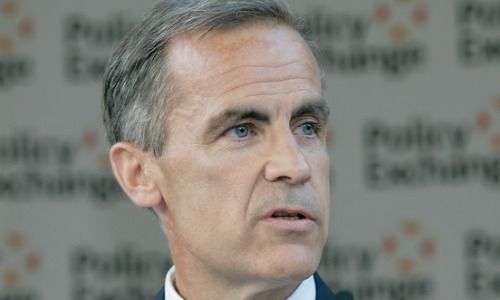Bank of England Governor Warns on Unchecked Fintech Rise
In a speech given at the Deutsche Bundesbank G20 conference, Mark Carney has warned on «Systemic Risks» from the rapidly encroaching financial technology. Are the central bankers afraid of losing control?
After waxing lyrically on how large and dynamic his hometown of London is the «world’s leading fintech centre» the Bank of England Governor went on to warn his audience of the dangers of financial technology moving too quickly.
Some may argue of course that China is already far ahead of London as a fintech centre and already embraces financial technology on a daily basis.
Carney was supported by the head of Germany’s central bank, Jens Weidmann, who said fintech could threaten financial stability and that it was important that authorities had access to reliable data in order to be able to assess the risks.
In his speech Carney said authorities had to focus more intensely on regulation and prudential requirements and ensure a more disciplined management of operational and cyber risks.
Worried Regulators and Nervous Banks
Banks and financial services firms are known to be concerned that their traditional business models will be disrupted in much the same way Amazon has bypassed traditional retail.
The importance of the branch and advisors is diminishing as more people manage their money on smartphones with the support of artificial intelligence.
Younger generations are now more comfortable banking and investing online seldom visiting bank branches which often sit in expensive prime real estate locations, an overhead fintech companies do not require.
Concerns Already Voiced
Speaking at the Singapore Fintech Festival in November 2016 Ravi Menon, Managing Director of the Monetary Authority of Singapore (MAS) said regulation must not front-run innovation. Introducing regulation prematurely may stifle innovation and potentially derail the adoption of useful technology. But the regulator must run alongside innovation.
It is important to keep pace with what is going on, assess what the risks might be,and continually evaluate whether it is necessary to regulate or leave things to evolve further, Menon commented
This means regulation comes in only when the risk posed by the new technology becomes material or crosses a threshold.
Asia's Sandbox Lead
Carney went on to say said new supervisory approach could include »regulatory sandboxes» such as the one already set up by Britain’s Financial Conduct Authority which allows start-ups to test products under regulatory supervision.
In the Asia-Pacific Singapore, Hong Kong, Malaysia and Australia have all established their own sandboxes with some already liaising across jurisdictions.



























